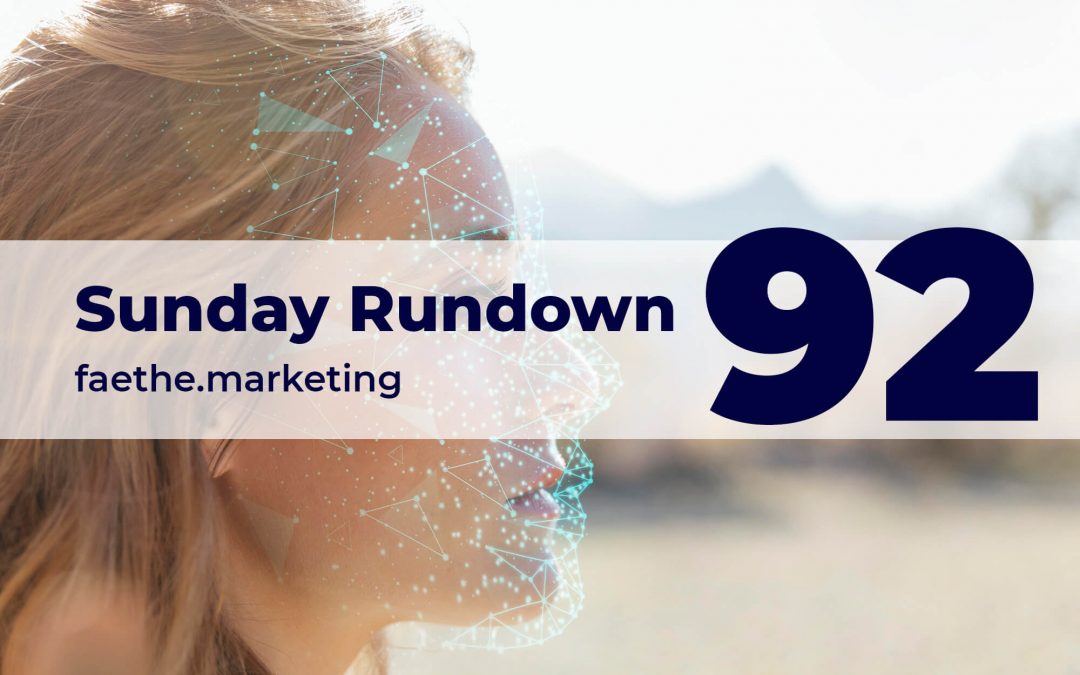We hope your week’s been good because your weekend’s going to get even better now that Sunday Rundown #92 is here! Keep on reading as we share with you the latest news from the marketing world.
Meta’s AI ‘personas’ might launch next month
Meta could launch AI-powered “personas” in its services — which include Facebook and Instagram — as soon as next month, giving users a new way to search, get recommendations, and otherwise engage with its products, the Financial Times reports. Citing conversations with three company insiders, the FT notes that the chatbots could come with distinct personalities, including one that offers travel recommendations “in the style of a surfer” and another that speaks like Abraham Lincoln.
To illustrate, the imminent launch could help Meta compete on two fronts. On the one hand, built-in chatbots could be a way to boost engagement with services like Facebook and Instagram in the face of competition from the likes of TikTok. On the other, the chatbots could serve as a display of Meta’s AI capabilities as it competes with Microsoft-backed OpenAI and Google’s Bard.
Meta starts blocking the news in Canada — its latest standoff with publishers
This week, Meta began blocking Canadian access to links and stories from news publishers — the company’s response to a bill that would require the tech giant to pay outlets for the right to distribute and profit from their content.
“As we’ve always said, the law is based on a fundamentally flawed premise,” Meta policy communications director Andy Stone wrote on Twitter. “And, regrettably, the only way we can reasonably comply is to end news availability in Canada.”
Bing, Bard, and ChatGPT: How AI is rewriting the internet
Big players, including Microsoft, with its Bing AI (and Copilot), Google, with Bard, and OpenAI, with ChatGPT-4, are making AI chatbot technology previously restricted to test labs more accessible to the general public.
How do these large language model (LLM) programs work? OpenAI’s GPT-3 told us that AI uses “a series of autocomplete-like programs to learn language” and that these programs analyze “the statistical properties of the language” to “make educated guesses based on the words you’ve typed previously.”
Or, in the words of James Vincent, a human person: “These AI tools are vast autocomplete systems, trained to predict which word follows the next in any given sentence. As such, they have no hard-coded database of ‘facts’ to draw on — just the ability to write plausible-sounding statements. This means they have a tendency to present false information as truth since whether a given sentence sounds plausible does not guarantee its factuality.”
YouTube Experiments With AI Auto-Generated Summaries
To enhance user experience and video discovery, YouTube has embarked on an experimental phase of auto-generating video summaries using artificial intelligence (AI).
Set to appear on watch and search pages. These AI auto-generated summaries, initially reported by Android Police, aim to offer viewers a concise understanding of a video’s content, assisting in their decision to watch it.
Bonus links
- Meta could make highly targeted ads opt-in, but only in Europe
- YouTube Rolls Out 6 Creative Tools For Shorts
- Elon Musk Says Semantic Search Coming Soon to X
- Advertisers spent more heavily for Amazon Prime Day — here’s what the numbers say
Thank you for taking the time to read our Sunday Rundown #92. If you have a story that you want to see in this series, reply to us below or contact us.
